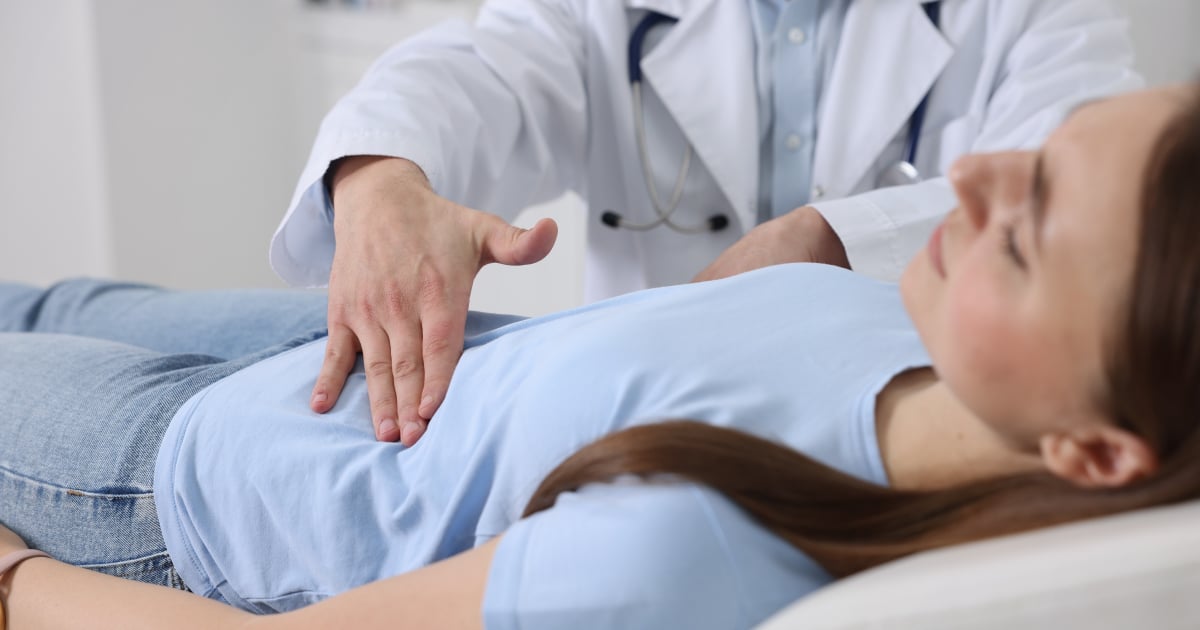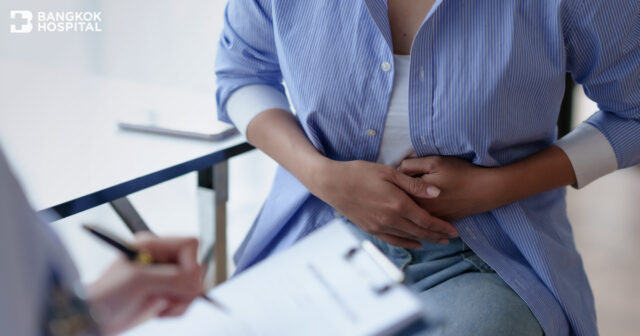One of the prevalent diseases like gastritis often causes annoyance in life. However, many people tend to neglect the symptoms of gastritis because the pain comes and goes. When the pain subsides, they do not consult a doctor for treatment until it progresses into a chronic condition and increases long-term risks.
What is gastritis?
Gastritis (Dyspepsia) is a disease caused by ulcers in the stomach or the upper part of the small intestine, including the inflammation of the stomach lining. It is important to see a doctor for treatment quickly because neglecting it can lead to various complications and even stomach cancer in severe cases.
What causes gastritis?
- Infection by the bacteria Helicobacter Pylori (H. Pylori)
- Eating irregularly
- Consuming highly spicy, sour, or acidic foods
- Frequent fasting
- Stress and anxiety
- Drinking coffee, consuming alcohol, smoking
- Taking pain medications, herbal medicines, or supplements that irritate the stomach
What are the symptoms of gastritis?
- Pain below the sternum or in the upper stomach area
- Intermittent stomach pain lasting from months to years
- Feeling of tightness in the stomach, stabbing pain, or bloating
- Stomach pain when hungry or on an empty stomach
- Pain before or after meals or when lying down and sleeping
- Bloating, flatulence, stomach heat, nausea, vomiting
- Some people experience severe pain without ulcers in the stomach, while others do not feel pain despite having large ulcers
Types of gastritis
- Gastritis without ulcers is the most common type, caused by excessive stomach acid, abnormal stomach contractions, or infection with H. Pylori bacteria.
- Gastritis with ulcers caused by H. Pylori bacteria, pain medications, or antiplatelet drugs like aspirin, occurring in the stomach and the upper part of the small intestine
- Stomach cancer usually presents with stomach pain, though it is relatively rare.
How is gastritis diagnosed?
The doctor will conduct a thorough history taking and physical examination to diagnose gastritis. May include blood tests, abdominal ultrasound, endoscopy of the gastrointestinal tract with possible biopsy for further examination. Endoscopy is often performed in cases of chronic stomach pain, no improvement after medication, or if anemia and weight loss are present.

How is gastritis treated?
The treatment for gastritis is divided into
- Behavioral modifications include eating meals on time, avoiding spicy food, not drinking tea or coffee, abstaining from alcohol, not smoking, getting enough rest, not overstressing, and avoiding medications that irritate the stomach.
- Medication strictly as prescribed by the doctor, usually for about 4 – 6 weeks. Follow the full course of medication for symptoms to improve and stop only upon doctor’s advice.
- Surgery is used in cases of complications such as stomach and small intestine bleeding, perforated ulcers, and blockages in the stomach.
How can gastritis be prevented?
- Eat regularly.
- Do not let your stomach be empty.
- If hungry, have some milk, soy milk, or juice.
- Avoid spicy and acid foods.
- Consult a doctor before taking medications that may irritate the stomach.
- Get enough rest.
- Exercise regularly.
- Avoid stress and anxiety.
Specialists in treating gastritis
Dr..Jaturong Amornrattanakosol Specialized doctor Gastrointestinal and Liver Diseases Center Bangkok Hospital
You can click here to make an appointment yourself.
Hospitals that are ready to provide treatment for gastritis
The Center for Gastrointestinal and Liver Diseases, Bangkok Hospital is ready to care for patients with gastritis with a team of specialists and multidisciplinary team to ensure patients return to their daily lives happily.










